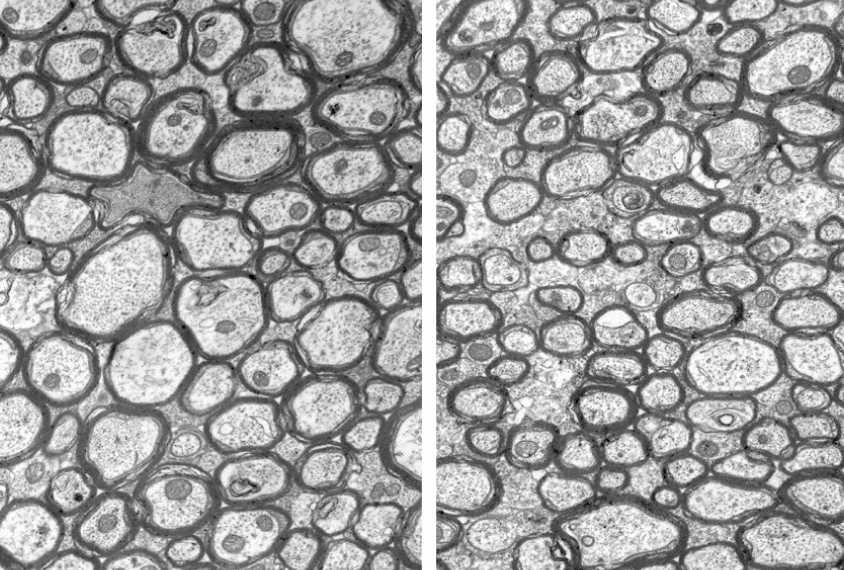Dup15q 2016
Recent articles
Registry for autism-linked syndrome spurs new research
Nine U.S. clinics are pooling their data to create a registry of people who have an extra copy of a region on chromosome 15 called 15q11-13, a genetic abnormality often found in people with autism.

Registry for autism-linked syndrome spurs new research
Nine U.S. clinics are pooling their data to create a registry of people who have an extra copy of a region on chromosome 15 called 15q11-13, a genetic abnormality often found in people with autism.
Motor troubles in Angelman may stem from nerve fiber anomaly
Unusually thin nerve fibers in the brain may underlie the motor difficulties seen in children with Angelman syndrome, an autism-related condition.

Motor troubles in Angelman may stem from nerve fiber anomaly
Unusually thin nerve fibers in the brain may underlie the motor difficulties seen in children with Angelman syndrome, an autism-related condition.
Explore more from The Transmitter
Two neurobiologists win 2026 Brain Prize for discovering mechanics of touch
Research by Patrik Ernfors and David Ginty has delineated the diverse cell types of the somatosensory system and revealed how they detect and discriminate among different types of tactile information.

Two neurobiologists win 2026 Brain Prize for discovering mechanics of touch
Research by Patrik Ernfors and David Ginty has delineated the diverse cell types of the somatosensory system and revealed how they detect and discriminate among different types of tactile information.
Shifting neural code powers speech comprehension
Dynamic coding helps explain how the brain processes multiple features of speech—from the smallest units of sounds to full sentences—simultaneously.

Shifting neural code powers speech comprehension
Dynamic coding helps explain how the brain processes multiple features of speech—from the smallest units of sounds to full sentences—simultaneously.
Astrocytes orchestrate oxytocin’s social effects in mice
The cells amplify oxytocin—and may be responsible for sex differences in social behavior, two preprints find.

Astrocytes orchestrate oxytocin’s social effects in mice
The cells amplify oxytocin—and may be responsible for sex differences in social behavior, two preprints find.